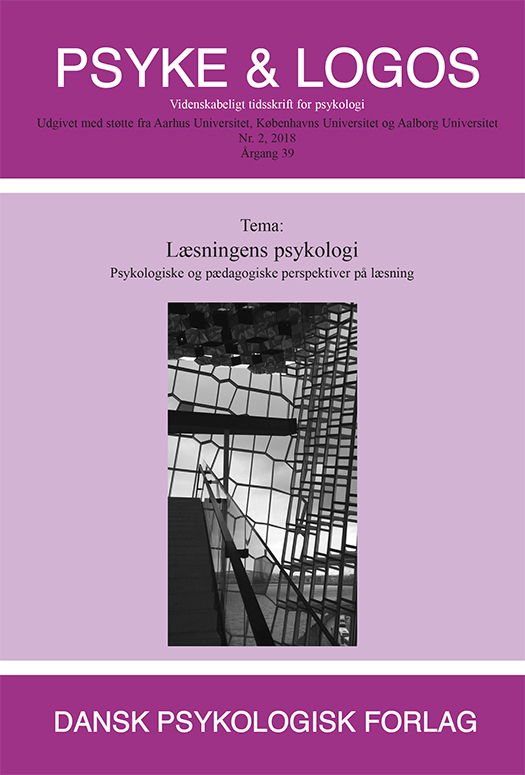Reading and writing processing in dyslexia
DOI:
https://doi.org/10.7146/pl.v39i2.112417Keywords:
læsning, dysleksi, læseprocessering, skriveprocesseringAbstract
This paper offers a broad theoretical overview of dyslexia at the behavioural, cognitive, biological and environmental levels from a multifactorial perspective. It also discusses how reading and writing processes can be seen as incorporating a number of cognitive sub-processes, and how this understanding can contribute to explaining why children and adults with dyslexia show different literacy profiles. The paper also underlines the importance of always considering developmental levels, both when assessing theory, and in a more practical and clinical setting of assessment and intervention. Furthermore, it discusses the so-called dyslexia paradox, namely that many children with dyslexia today are identified so late that the optimal interval for intervention has already passed, even though instruments for early risk assessment were available. The paper concludes by underlining the need for an assessment of the risk of dyslexia at preschool, but also emphasising that this can and must be done in a way that is not perceived as a burden by the children.
Downloads
Published
How to Cite
Issue
Section
License
Ophavsret er tidsskriftets og forfatternes. Det er gældende praksis, at artikler publiceret i Psyke & Logos, som efterfølgende oversættes til andet sprog, af forfatteren frit kan publiceres i internationale tidsskrifter, dog således at det ved reference fremgår, at den oversatte artikel har et forlæg i en dansksproget version i Psyke & Logos. Artikler kan frit deles og linkes til på forsknings- og undervisningsnetværk (så som Blackboard). Link foretrækkes, fordi det giver oplysning om brug af tidsskriftets artikler.




